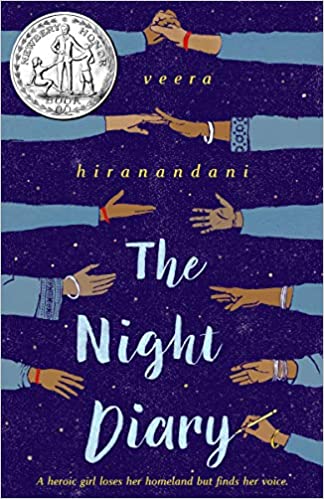 I don’t often review middle grade here (I don’t often read middle grade, either), but I’m making an exception for this book because it was so good. It also felt more borderline lower-YA to me.
I don’t often review middle grade here (I don’t often read middle grade, either), but I’m making an exception for this book because it was so good. It also felt more borderline lower-YA to me.
It’s 1947 right before the British were to leave India and Nisha and her twin brother Amil live with their Hindu father and his mother in far northwest India. Their Muslim mother died in childbirth. But when the leaders decide that the best solution is to split the country into two, Pakistan and India, they find themselves in the wrong place for their father’s religion. Their father is a doctor so they live in a nice house, but eventually he decides that it’s more dangerous to stay and they leave on foot, heading toward the border.
For those who don’t know, Indian Partition was a horrible, bloody, and shameful time in South Asian history. In the Punjab regions of both Pakistan and India, Hindus, Muslims, and Sikhs were all killing each other over nothing, really. They killed each other because others had killed their families. Muslims would stop the trains heading south from Pakistan and massacre people, and Hindus would stop the trains heading north into Pakistan and massacre people. People of the “wrong” religion who stayed put in either East or West Punjab were also killed.
Nisha was given a diary and started writing letters every night to her mother about her day in them. So we see her account of everything leading up to their departure, and what they go through trying to make it to new India. She’s a wise and observant girl, shy with strangers and desperate to know more about her mother. It’s impossible not to like her, or her brother, who struggles in school but is a talented artist (as was their mother).
This is a really moving book that teaches about a significant point in history without being preachy. Nisha asks important questions that will make readers think. I highly recommend this for fans of middle grade in general, but I also think it will appeal to those who like historical fiction in general.
 There’s good reason this is a well-known and well-respected book. Woodson has done a great job with a tough subject, written 16 years ago—long before the publishing world started earnestly trying to make up for its lack of diversity.
There’s good reason this is a well-known and well-respected book. Woodson has done a great job with a tough subject, written 16 years ago—long before the publishing world started earnestly trying to make up for its lack of diversity.